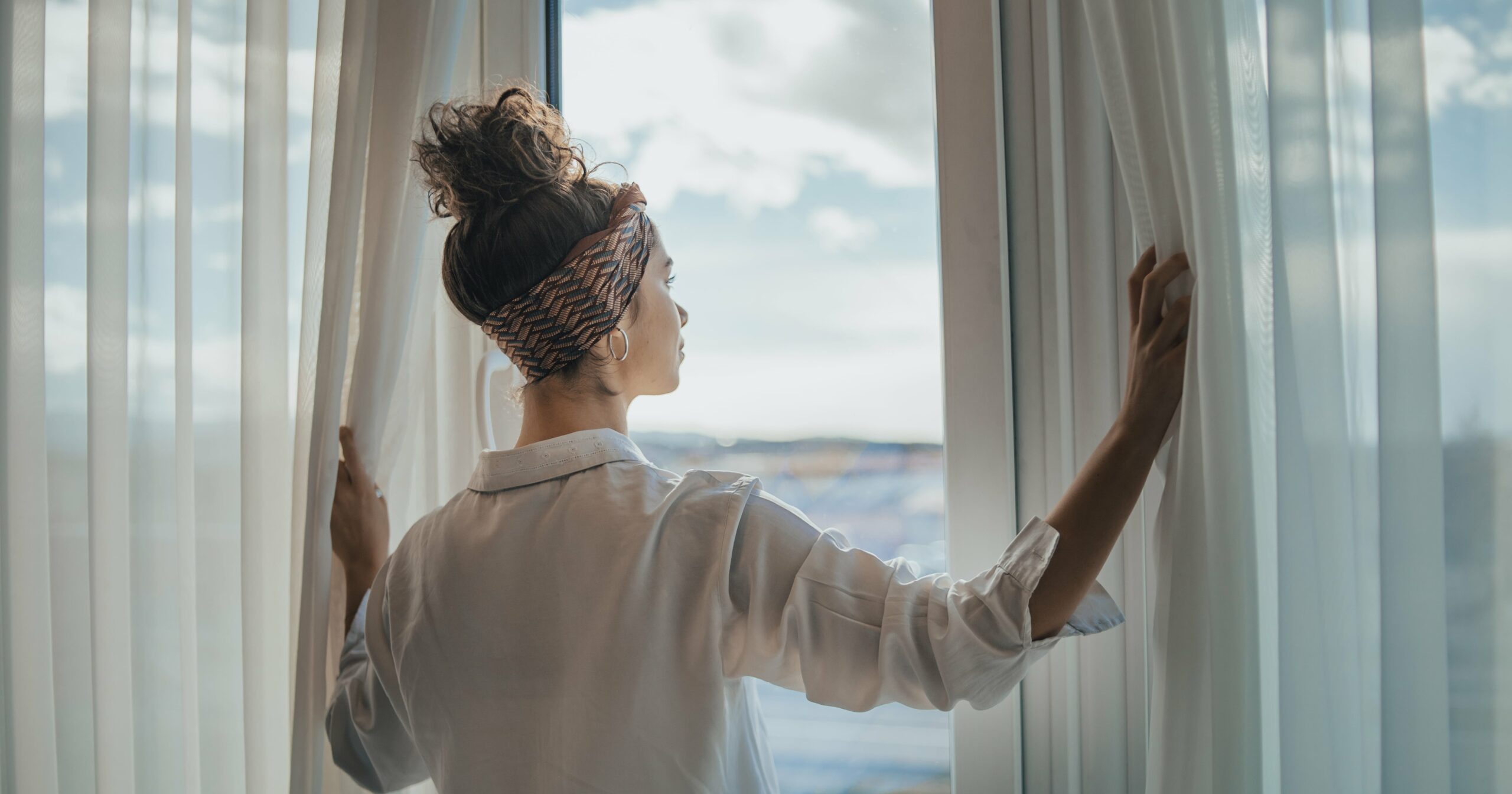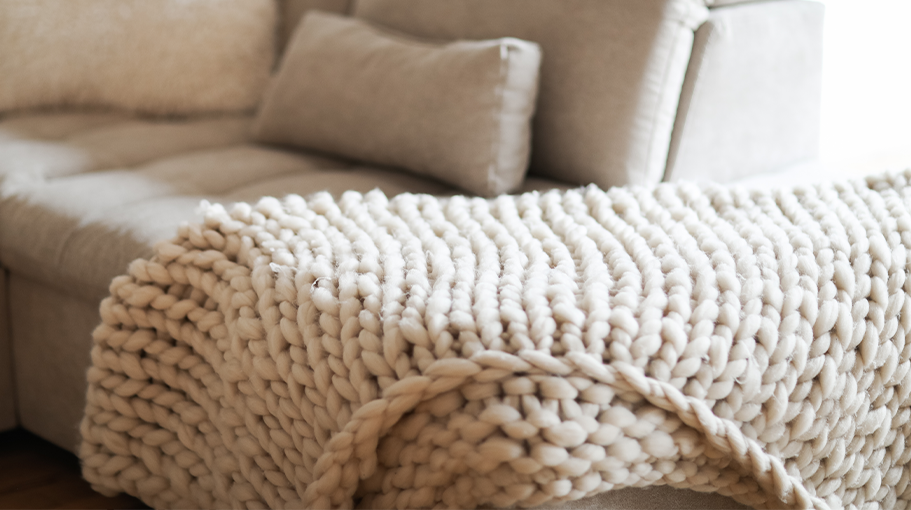There’s no doubt that the weather can impact your mood. Just think about it: When it’s a sad, rainy, or gloomy day, you’re more prone to feeling sluggish. On the flip side, a warm day with a perfect breeze may bring about feelings of happiness and relaxation. But what if it’s a beautiful day out and you’re stuck inside at work? Or, you simply don’t have the motivation (or desire) to engage in outdoor activities? If you’re anything like the several hundreds of TikTok users discussing their inner battle between going outside or staying indoors, you’re likely experiencing “sunshine guilt,” a phenomenon that’s gone viral on the app and garnered more than 12.4 million views.
“Sunshine guilt captures that pang of regret when you’re indoors on a gorgeous day, wrestling with the thought that you ought to be soaking up the sun or doing something outside, even if your body or mind craves a day in,” says Alyssa Scolari, a licensed counselor and owner of See You Through It Counseling. “This phenomenon spotlights our collective struggle with self-care versus societal expectations of making the most of every sunny moment.”
From a psychotherapist’s perspective, Scolari says that sunshine guilt is a product of external norms and personal expectations. “We’ve been conditioned to associate sunny days with activity and productivity, creating a societal norm that ‘good weather’ should not be wasted,” she says.
Sound familiar? That’s because sunshine guilt is closely related to “FOMO,” or the Fear of Missing Out. In the case of sunshine guilt, this may occur when, say, you’re indoors on a nice day and hear your neighbors having a pool party next door. Both sunshine guilt and FOMO are rooted in comparison and the anxiety of not making the most of our time, which is influenced by social media and cultural narratives, says Scolari.
How the Sun Affects Our Mood
The sun does more than just brighten our surroundings – it’s like an instant pick-me-up for our mood that has a ripple effect on our day-to-day life. This is because the sun leads to higher levels of serotonin, the feel-good chemical in our brain that jumps at the sight of sunlight, says Scolari. Good weather also encourages us to step outdoors and become more active, which is beneficial for our physical health.
Most of all, pleasant weather reinforces our connections with others, whether that means engaging in a spontaneous picnic with family, a leisurely walk in the park with friends, or just a chat in the sunshine with a neighbor. “These social moments do wonders for our mental health and energy levels by offering a sense of connection and belonging, which are key to emotional well-being,” says Scolari. “Engaging with others and nature can lower stress and anxiety levels, leading to an uplift in energy.” Plus, the physical activity involved, even if it’s just a walk around the block, triggers endorphins, further enhancing our mood. “It’s a beautiful cycle where sunshine acts as a catalyst for health and happiness, making every ray count towards a brighter, more energetic self.”
Sunshine Guilt and Climate
The climate you’re in can have a big impact on the experience of sunshine guilt. For instance, in areas where cold weather prevails, sunny days are rare gems, “leading to a heightened sense of urgency to make the most of them,” Scolari says, who adds that this cold climate contrasts with areas like Los Angeles, where abundant sunshine and the pressure to seize every sunny day is less intense.
“There’s a psychological push to maximize those moments, potentially heightening feelings of guilt when not doing so,” says Scolari. “Conversely, in consistently warm climates, the abundance of sunny days lessens the pressure to exploit every bit of sunshine, possibly reducing the intensity of sunshine guilt.”
How to Cope With Sunshine Guilt
Whether staying indoors on a nice day is your choice or not, there are specific ways to manage those guilty feelings. For one, it’s important to validate your feelings and practice self-compassion. “If I were guiding a client through this, I would emphasize that it’s okay to need rest or indoor activities,” Scolari says. “It’s important to understand why staying indoors triggers guilt and to question the validity of these feelings – are they rooted in personal desires or external expectations?”
If you have unavoidable indoor commitments (say, you’re stuck in an office working or have a physical ailment), try to acknowledge the situation’s limitations. “Recognizing that your current circumstances are out of your control can alleviate guilt,” Scolari says. “Instead, focus on creating moments of joy and relaxation indoors when possible, and plan for outdoor activities during your free time.” This can be anything from personalizing your workspace with photos and artwork, to taking a music break, to engaging in a brief meditation. All of this can help make the indoor environment more pleasant and break up the monotony of the day, says Scolari.
While sunshine and outdoor activities come with a slew of physical and mental benefits, it’s all about balance. Embrace the sunny days when you can, but also cherish the moments of quiet and relaxation indoors, understanding that both contribute to a happy, healthy life.
Michelle Rostamian is a freelance beauty writer who has contributed to POPSUGAR, Byrdie, and HYPEBAE.



